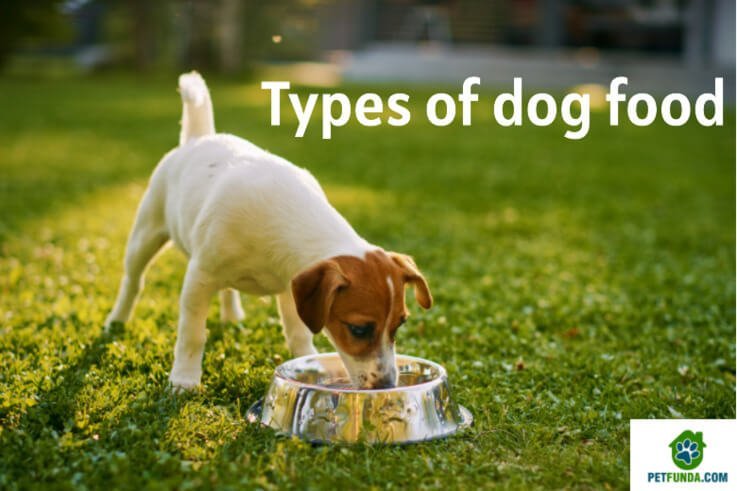We all love our dogs and want to take the best care of them. And part of taking care of them is to provide them with a balanced and nutritious diet. Further, there are several types of dog food that every dog lover should know about. So, we have compiled a list of the ten best types of dog food that we believe every dog lover should know about.
Ten different types of dog food and characteristics
Let’s get started:
1. Dry Dog Food
Dry dog food or Kibble is the most common type of dog food available and is a widely used type of dog food. Dry dog food is typically made by combining meat, grains, vegetables, and other ingredients in proportions that are considered ideal for dogs. Part of the reason for the popularity of dry food is that it has a longer shelf life and is convenient to store. However, it also offers invaluable health benefits for your dogs, including promoting dental health by reducing plaque and tartar buildup. It is available in various formulas tailored for different life stages, breed sizes, and dietary needs.
2. Wet Dog Food
Wet dog food, sometimes also known as canned dog food, comes in sealed cans or pouches. Compared to dry dog food, it contains a higher moisture content compared to dry food and thus can help keep dogs hydrated. Wet food is also considered more palatable and can be a suitable option for dogs with dental issues or those who are picky eaters. It is also available in various flavors and formulas to meet different dietary requirements.
3. Raw Dog Food
Raw dog food, also sometimes called BARF (Biologically Appropriate Raw Food) diet, is another excellent type of dog food. It consists of uncooked and minimally processed ingredients. As its name suggests, it contains raw meat, bones, fruits, vegetables, and sometimes additional supplements. The idea behind this diet is that it mimics a dog’s natural diet and thus can offer several potential benefits, such as improved coat condition, dental health, and digestion. However, it requires careful planning to ensure a balanced and complete diet using this type of food, and there are potential risks associated with handling raw meat.
4. Freeze-Dried or Dehydrated Dog Food
Freeze-dried or dehydrated dog food is typically made by removing moisture from the ingredients while preserving their nutritional value. These types of foods often require rehydration by adding water before they can be served. They can offer the convenience of dry food in combination with the potential benefits of raw food, as they are very minimally processed and thus retain much of the natural nutrients. They are also lightweight and have a longer shelf life.
5. Grain-Free Dog Food
Grain-free dog food is another excellent type of dog food. As its name suggests, it excludes grains like wheat, corn, and soy but often uses alternative carbohydrate sources such as potatoes, sweet potatoes, or peas. Grain-free diets are thus typically marketed for dogs with food sensitivities or allergies. Ensuring a balanced diet for your dog is doubly essential if they are being fed this type of food.
6. Limited Ingredient Dog Food
As its name suggests, limited ingredient dog food is formulated with a limited number of ingredients to minimize the risk of food sensitivities or allergies. The diets based on such food typically contain a single source of protein and a few easily digestible carbohydrates. They are typically beneficial for dogs with known food sensitivities or for elimination diets when identifying specific allergies.
7. Prescription Dog Food
As their name suggests, prescription dog food is specifically formulated for addressing specific health conditions or dietary needs in dogs. These diets are typically used only recommended by veterinarians and may require a prescription.
8. Senior Dog Food
As dogs grow older, their nutritional requirements change as their metabolism slows down, and they may require fewer calories. Senior dog food is designed to meet such changing dietary needs of older dogs. Senior dog food often contains lower levels of fat and calories and thus can prevent weight gain and may also have added ingredients to support joint health, digestion, and cognitive function. These diets can be tailored to address the unique requirements of aging dogs.
9. Breed-Specific Dog Food
Different breeds may have different energy levels, body compositions, and predispositions to certain health issues; and thus have different national requirements. As its name suggests, breed-specific dog food is formulated to meet the unique nutritional needs and potential health concerns of particular dog breeds.
10. All Life Stages Dog Food
All life stages dog food items are formulated to meet the nutritional needs of your dogs at various life stages, including puppies, adults, and seniors. All life stages dog food can be particularly suitable for multi-dog households with dogs of different ages or for those who prefer the convenience of feeding a single food to all their dogs.
Frequently Asked Questions (F.A.Q.s)
There are several questions that the readers may have about different types of dog foods and how to use them best. The following are some of the most Frequently Asked Questions (F.A.Q.s):
Question: How to choose the best dog food?
Answer: The following tips may help you choose the best dog food:
- Ensure that your dog is properly hydrated, particularly if the dog food you are using is dry.
- Consider the dog’s sensitivities and allergies when choosing the right dog food.
- Consult a veterinarian while selecting the ideal dog food.
Question: Can’t dogs eat the same food as me?
Answer: Dogs have nutritional requirements that are different from humans and, as such, may not thrive on food meant for humans.
If the reader has any other questions, they should feel free to ask them here.
The Bottom Line
One can easily wrap up the above discussion by concluding that there are several different types of dog food, and one must choose the best diet for one’s dog carefully after research and consultation with one’s veterinarian.





